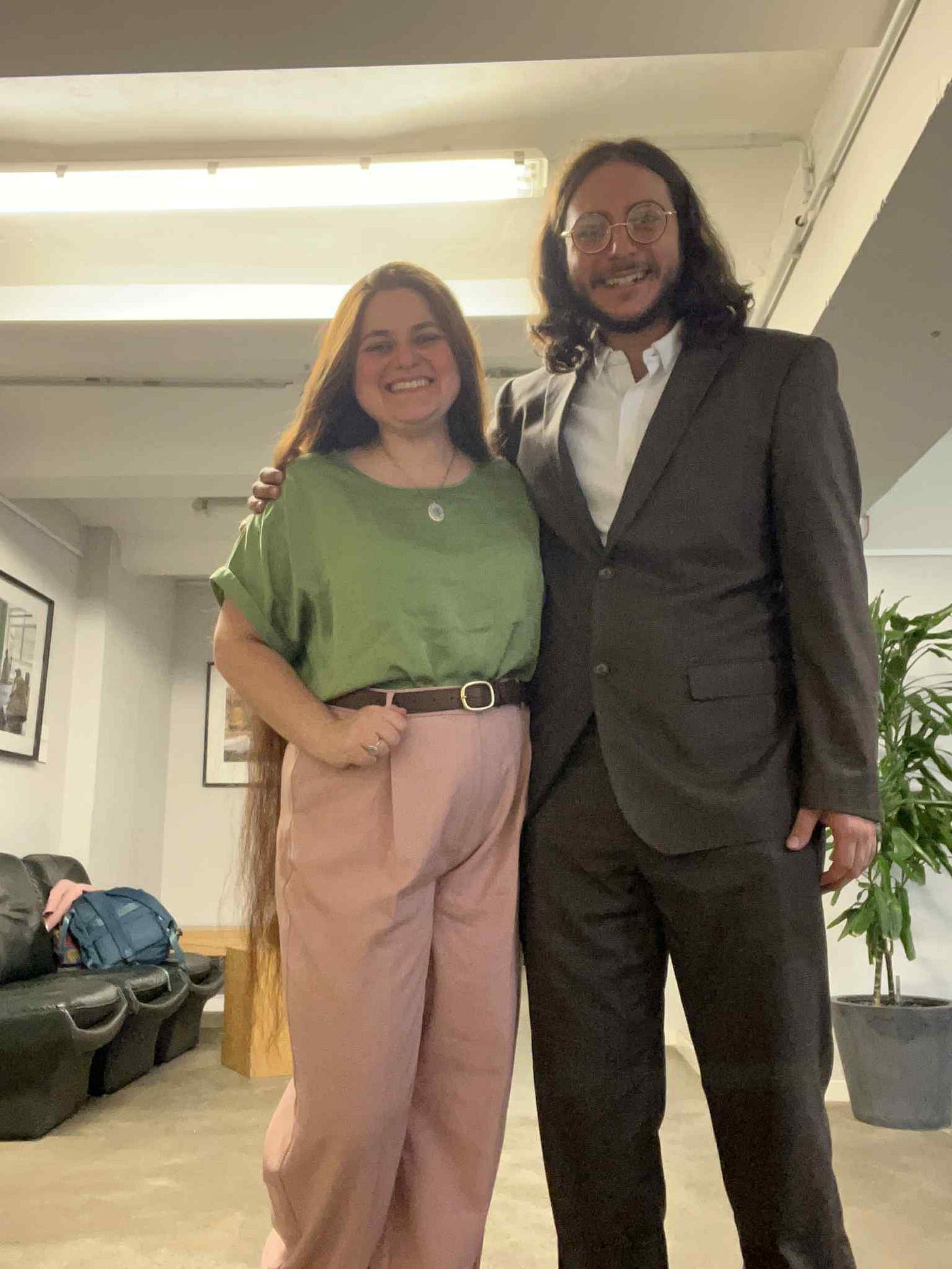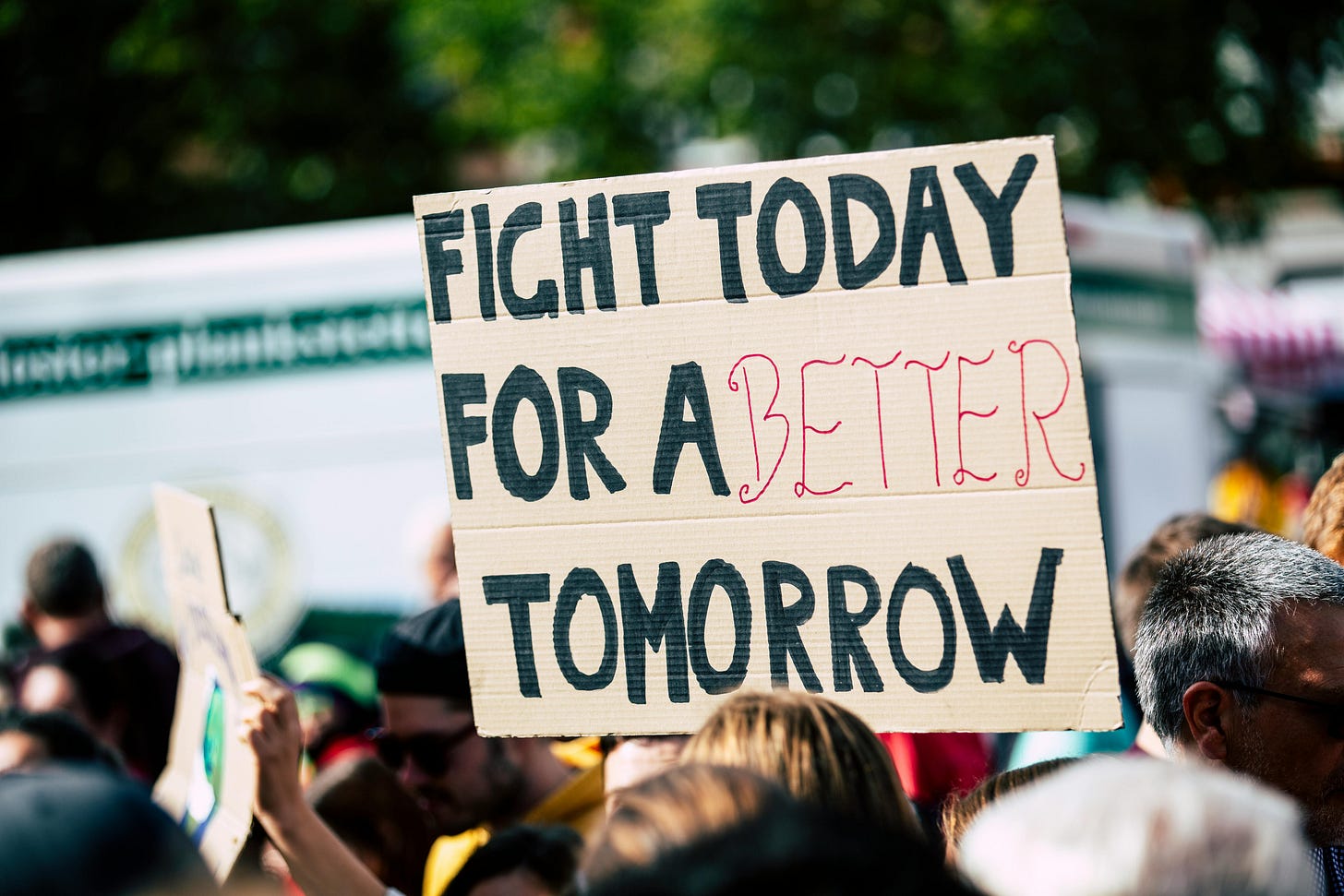SUMMER OF MEMORY: WHY WE REMEMBER EVEN WHEN SCHOOL’S OUT
By Danielle Wirsansky (Member of the Foundation’s Board of Directors)
Summer often signals a collective exhale. Schools close, routines loosen, and many take time to rest, travel, or disconnect. But while the rhythms of academic life pause, history does not. Memory does not. And neither does the quiet, ongoing work of resistance.
At the Rosenstrasse Foundation, we are often asked why Holocaust education, remembrance, and civil courage initiatives continue through the summer months. The answer is simple: because the responsibility to remember does not follow a school calendar. If anything, this season—slower, more reflective, more open to connection—is an ideal time to revisit the lessons of the past.
The women of the Rosenstrasse Protest didn’t wait for the “right moment” to act. In February 1943, amid wartime chaos, they stood on the street day after day, demanding the release of their Jewish husbands. Their moral clarity wasn’t seasonal—it was urgent. It was daily. Their resistance teaches us that civil courage is not a matter of convenience; it’s a matter of conscience.
Today, we honor that legacy by making space for memory, even when the world slows down. Summer is a time when families visit memorials, when travelers trace historical footsteps, and when students outside the classroom can reflect in ways that are deeper and more personal than they might during the school year. It’s also a time when many educators begin preparing for the year ahead—quietly gathering new tools, stories, and strategies for engaging with difficult history.
Remembering during the summer also offers the chance to engage intergenerationally. Grandparents share stories with grandchildren over family visits. Community events become opportunities to talk about history with people outside the typical classroom setting. And in quieter moments, we can take time to read, listen, or reflect—without the pressure of performance or assessment.
This season, we encourage our readers to take memory with them: to bring a book about resistance to the beach, to visit a local Holocaust memorial on a road trip, to share a story from your family’s past around the dinner table. These small acts matter. They are the threads that keep historical awareness alive.
Civil courage isn’t bound by a syllabus. It’s carried in what we choose to remember, when no one is assigning it. It lives in the stories we keep telling—even when school’s out.
SHEDDING NEW LIGHT: DANIELLE AND LIAM WIRSANSKY PRESENT AT JUNIOR SCHOLARS CONFERENCE
By Danielle Wirsansky
At the 2025 8th Junior Scholars Conference in Jewish History, Danielle and Liam Wirsansky brought forward a deeply personal and historically grounded presentation that challenged conventional understandings of resistance in Nazi Germany. Their focus? The role of intermarriage as a form of defiance—and survival.
Centering their work on the Lewin family, the Wirsanskys argued that remaining in a Jewish–non-Jewish marriage under the Third Reich was not merely an act of endurance but an act of resistance in itself. At a time when Nazi racial policy sought to dismantle Jewish families, those who stayed intermarried—despite enormous social and political pressure—disrupted the regime’s efforts to fully segregate, isolate, and deport Jews from German society.
The heart of their research was the story of Margot Graebert (née Lewin), a Holocaust survivor whose family was directly affected by the 1943 Rosenstrasse Protest. Drawing on oral history collected in a personal interview, Danielle and Liam shared how Margot’s mother refused to abandon her Jewish husband and even brought young Margot with her to the Rosenstrasse detention center to join the protest. Margot’s testimony provided rare insight into both the protest itself and what it meant to grow up in an intermarried family under Nazi rule.

In placing Margot’s story within the broader historical framework, the Wirsanskys underscored how civil courage did not always take the form of organized resistance networks or armed defiance. Sometimes, it meant standing by family in the face of mounting danger—an act that could, and often did, change the course of survival.
Following the conference, Danielle and Liam were able to visit the Rosenstrasse Memorial in Berlin, where they laid flowers and reflected on the legacy of those who had protested there. For both siblings, the moment reinforced the urgency of preserving intergenerational memory and highlighting the quieter forms of resistance that history has too often overlooked.
Their presentation was part of a growing wave of scholarship that seeks to expand the definition of resistance and make space for the full complexity of lived Jewish experience under Nazism. As historians, the Wirsanskys continue to advocate for more inclusive narratives that recognize the moral and political weight of simply staying—of refusing to let the regime dictate the boundaries of loyalty, love, and family.
CIVIL COURAGE TODAY: STANDING UP - THE UNSUNG HEROES OF MODERN DAY RESISTANCE
By Danielle Wirsansky
In an era defined by rapid-fire headlines and viral outrage, some of the most powerful acts of civil courage remain quiet—performed without cameras, without slogans, and often without recognition. These are the stories of ordinary people who, despite tremendous risk, refuse to comply with injustice. Their resistance is not loud, but it is unwavering.
Take, for example, the story of a group of librarians in Belarus who have quietly resisted the Lukashenko regime by preserving banned books and safeguarding independent histories. In the wake of the 2020 protests, many cultural institutions were forced to purge their collections of works by dissidents or authors in exile. But in more than one local library, brave staff members defied government orders, creating private archives and passing books hand-to-hand. Their work ensures that truth cannot be so easily erased.
Or consider the teachers in Afghanistan who, despite Taliban crackdowns on education for girls, continue to hold informal classes in private homes. These underground classrooms are small, often hidden, but they are spaces of resistance. The simple act of teaching reading and math has become a radical rejection of a regime that seeks to silence and subjugate.

Closer to home, whistleblowers around the world put careers and lives on the line to expose government abuse, corporate negligence, and human rights violations. They do not fit the image of protestors in the streets, but their actions carry a similar moral weight. They speak truth where silence is expected—and in doing so, protect democratic integrity.
These acts echo the spirit of the Rosenstrasse Protest in moral clarity. The women who stood on that Berlin street in 1943 stood day after day, in cold so bitter that as Charlotte Israel recalled, the tears froze on her face. Their persistence saved lives.
Modern-day heroes of civil courage remind us that resistance doesn’t always look like a revolution. Sometimes, it looks like a librarian refusing to lock away truth. A teacher opening her door to girls in need. A worker pressing “send” on an email that could cost them everything.
These unsung stories are harder to headline, but they are no less essential. They are the connective tissue that holds civil society together under threat. As we remember the Rosenstrasse Protest and honor its legacy, we must also look to today’s quiet resistors—those who, with little more than conscience, continue to stand their ground.
PRIDE MONTH, PUBLIC VOICE, AND THE POWER OF COLLECTIVE ACTION
Marking pride month this year, a wave of American businesses dropped their funding for events celebrating LGBTQ rights. Yet the LGBTQ community showed no sign of retreat. Pride leaders instead cast this month’s public celebrations as defiance to the current government and those who voluntarily fall in line with hostility toward gay rights.
From LA’s baseball team the Dodgers, there is news of pushback rather than of obedience in advance. Recently, Columbian-Dominican singer Nezza opened a game with an impassioned rendition of the national anthem in Spanish. She sang in Spanish to give voice to the Latino community targeted by recent immigration raids, she said, and she hoped it would inspire others to speak out as well.

Spurred by fan pressure, Dodgers CEO Stan Kasten pledged $1 million to support targeted families. We have “heard the calls for us to take a leading role on behalf of those affected,” he said. The story of the pressures behind Kasten’s decision points to the power of cumulative or collective voices of persons without a particular office or position of power. Fan pressure in this case illustrates the importance of each of us taking action, even though the action of any one of us alone may not make much difference overall. If enough individuals take action for the same cause they add up to force. Voices, when united, carry weight.
WHAT WE’RE READING: NEW WORKS ON RESISTANCE AND MORAL COURAGE
By Danielle Wirsansky
This month, we’re highlighting recent books, documentaries, and podcasts that explore resistance movements and moral courage. These works offer fresh perspectives on historical and contemporary acts of defiance, providing valuable insights for educators, students, and anyone interested in the enduring spirit of resistance.
Books
No Straight Road Takes You There by Rebecca Solnit (2025)
In this collection of essays, Solnit addresses the emotional toll of activism and offers hope as a form of rational defiance. Drawing from personal anecdotes and global crises, she emphasizes the transformative power of storytelling in creating societal change. The GuardianResist: How a Century of Young Black Activists Shaped America by Rita Omokha (2024)
Omokha chronicles the history of Black youth activism in the United States, from early organizers like Ella Baker to contemporary movements against racial injustice. The book underscores the pivotal role of young activists in shaping American democracy. WikipediaHow Tyrants Fall: And How Nations Survive by Marcel Dirsus (2024)
Dirsus examines historical strategies for overthrowing dictators and their relevance in the modern era, particularly in the context of contemporary mass surveillance technologies. The book offers insights into the resilience of nations facing authoritarian threats
Podcasts
The Sacred hosted by Elizabeth Oldfield
This podcast features conversations with public figures about their deepest values and the stories that shape them. It delves into how individuals build empathy and understanding across divides, offering insights into the moral frameworks that guide acts of courage. Apple PodcastsLive Brave Podcast with Margie Warrell
Warrell's podcast explores themes of bravery and leadership through interviews with leaders and luminaries. It provides inspiration and practical advice for cultivating courage in various aspects of life.
Documentaries
Resistance: They Fought Back (2024)
This recent documentary powerfully dispels the myth of Jewish passivity during the Holocaust by spotlighting acts of Jewish resistance across Europe. Featuring survivor testimony and expert commentary, it offers a nuanced view of defiance during one of history’s darkest periods.
(Available via PBS)The U.S. and the Holocaust by Ken Burns, Lynn Novick, and Sarah Botstein (2022)
This three-part series explores America’s response to the Holocaust, including the moral questions faced by both government officials and everyday citizens. It invites viewers to reflect on how civil courage—or the lack of it—shaped policies and lives.
(Streaming on PBS)Navalny (2022)
This gripping documentary follows Russian opposition leader Alexei Navalny as he investigates his own poisoning and continues to challenge authoritarianism in Russia. It’s a chilling and urgent portrait of individual resistance against state power.
(Available on Max/HBO)
These resources offer diverse perspectives on resistance and moral courage, enriching our understanding of the myriad ways individuals and communities stand up against oppression. Whether you're seeking historical context or contemporary analysis, these works provide valuable insights into the enduring human spirit of defiance and resilience.





